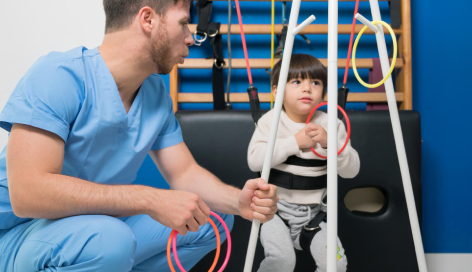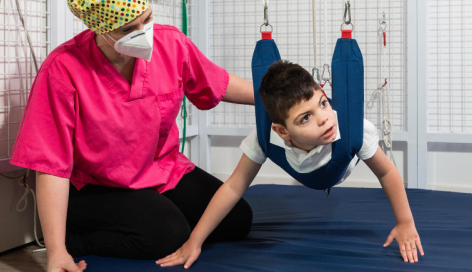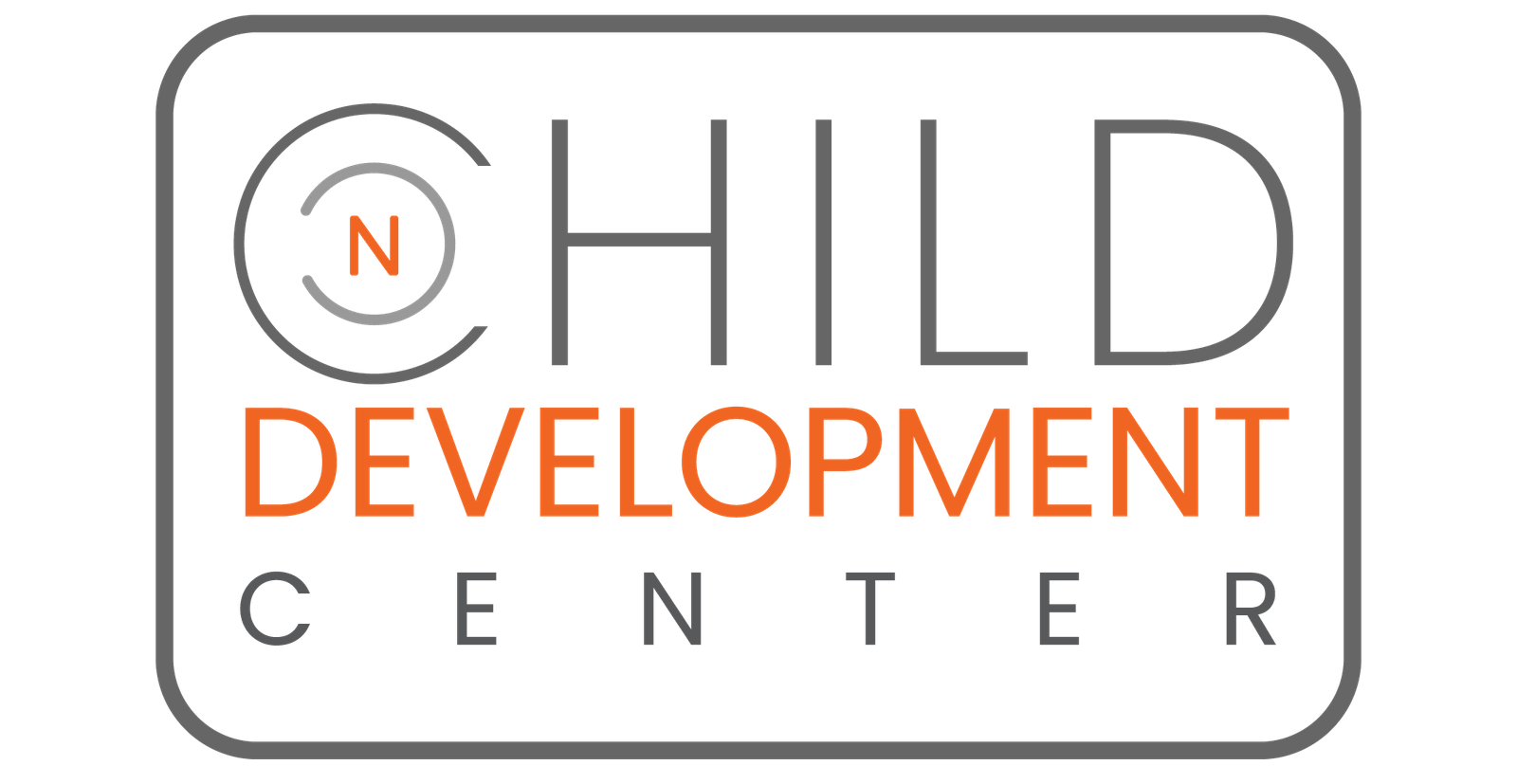Neuromuscular Disorders
Conditions Treated
- Cerebral Palsy
- Autism Spectrum Disorder
- ADHD
- Developmental Delay
- Epilepsy Treatment
- Speech Delay
- Headaches and Migraines
- Behavioural/Conduct Disorders
- Feeding Disorder
- Learning Disability
- Movement Disorder
- Neuromuscular Disorders
- Neurometabolic and Neurogenetic Conditions
- Sleep Disorder
- Sensory Integration
Neuromuscular disorders encompass a host of conditions that affect the muscles and the nerves that control them.
These disorders can lead to significant mobility, coordination, and overall quality of life challenges. For families seeking effective neuromuscular treatment, the Child Development Center offers world-class care tailored to each child’s unique needs.
What are Neuromuscular Disorders?
Neuromuscular disorders are medical conditions that disrupt the communication between nerves and muscles. This disruption can lead to muscle weakness, wasting, and impaired motor functions. Some common neuromuscular disorders include:
- Muscular Dystrophy (MD): A group of genetic disorders causing progressive muscle degeneration.
- Cerebral Palsy (CP): A neurological condition affecting movement and muscle tone.
- Spinal Muscular Atrophy (SMA): A genetic condition that impacts muscle strength and mobility.
- Peripheral Neuropathy: Damage to peripheral nerves causing weakness, pain, or numbness.
- Myasthenia Gravis: A chronic autoimmune disease leading to muscle fatigue and weakness.

Causes of Neuromuscular Disorders
The causes of neuromuscular disorders differ based on the specific condition. Some common causes include:
- Genetic Factors: Many disorders, like SMA and MD, are inherited.
- Autoimmune Reactions: Conditions like Myasthenia Gravis arise from the body’s immune system attacking its tissues.
- Infections: Certain viral or bacterial infections can damage nerves and muscles.
- Metabolic Imbalances: Disorders like mitochondrial myopathies result from metabolic issues affecting muscle function.
Understanding the underlying cause is critical to providing effective neuromuscular treatment in Dubai.
Symptoms of Neuromuscular Disorders
Symptoms can range from mild to severe and vary depending on the disorder. Some common symptoms include:
- Muscle weakness or stiffness.
- Difficulty with coordination or balance.
- Numbness or tingling in limbs.
- Fatigue or constant tiredness after physical activity.
- Problems swallowing or breathing in severe cases.
If your child exhibits any of these symptoms, seeking timely intervention can significantly affect their developmental outcomes.
Diagnosing Neuromuscular Disorders
The diagnostic process for neuromuscular disorders involves:
- Comprehensive Medical History: Understanding family history and early symptoms.
- Physical Examination: Assessing muscle strength, tone, and reflexes.
- Electromyography (EMG): Measuring electrical activity in muscles to determine abnormalities.
- Genetic Testing: Identifying inherited disorders like SMA or MD.
- Imaging Tests: MRI or CT scans to evaluate structural issues in the nervous system.
Accurate diagnosis is crucial for effective neuromuscular treatment in Dubai, and the Child Development Center employs advanced diagnostic tools to ensure precise assessments.

Treatment options for neuromuscular disorders
Effective management of neuromuscular disorders demands a multidisciplinary approach. Here’s how the Child Development Center provides comprehensive care:
1. Physiotherapy and occupational therapy
Rehabilitation is vital in improving mobility, strength, and daily functioning. Tailored physiotherapy plans focus on:
- Exercises that promote muscle strengthening.
- Stretching routines to boost flexibility.
- Balance and coordination training.
2. Speech and swallowing therapy
For children experiencing difficulties with speech or swallowing, specialized therapies help improve communication and feeding abilities.
3. Medication management
Certain neuromuscular disorders like Myasthenia Gravis benefit from medications like immunosuppressants or corticosteroids to alleviate symptoms.
4. Assistive devices
Custom orthotics, wheelchairs, or braces can significantly enhance independence and mobility for children with physical limitations.
5. Psychological support
Coping with a neuromuscular disorder can be challenging for children and their families. Counseling services and support groups help build emotional resilience.
Why choose neuromuscular treatment in Dubai?
Dubai has state-of-the-art healthcare facilities, making it a global hub for advanced treatments. At the Child Development Centre, families receive:
- Expert Multidisciplinary Teams: Highly trained specialists in neurology, physiotherapy, and developmental therapy.
- Personalized Care Plans: Treatment tailored to each child’s unique needs.
- Cutting-Edge Technology: Access to advanced diagnostic tools and therapeutic techniques.
- Family-Centric Approach: Inclusive care that empowers families to actively participate in their child’s journey.
Tips for Supporting Children with Neuromuscular Disorders
Parents play a vital role in managing neuromuscular disorders. Here are some tips to ensure optimal care:
- Encourage Physical Activity: Engage in low-impact exercises to maintain muscle strength.
- Create a Safe Environment: Remove tripping hazards and install supportive equipment at home.
- Maintain Regular Appointments: Consistent check-ups help track progress and adjust treatments as needed.
- Provide Emotional Support: Offer reassurance and celebrate small achievements to boost confidence.
Trust Child Development Centre - We can help!
Navigating life with a neuromuscular disorder can be overwhelming, but expert care can make all the difference.
At the Child Development Centre(CDC), we are committed to providing comprehensive, compassionate, and effective neuromuscular treatment in Dubai.


